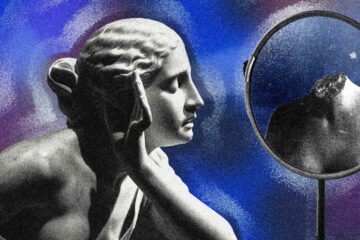Erik Baker at The Drift:
 Turning to philosophy to learn how to live is nothing new, of course. But the explicitly inspirational and instructional valence of much that appears today under that heading, even from academic presses, is striking — as is the apparent consensus that the central task of philosophy is to guide seekers to a greater acceptance of imperfection and insignificance. Sometimes these books focus on a particular school of philosophy, giving readers an “-ism” — existentialism, Buddhism, Taoism, and above all Stoicism, now practically a genre unto itself — with which to identify. Others staple together eclectic smatterings of received ideas into less partisan surveys on how to…
Turning to philosophy to learn how to live is nothing new, of course. But the explicitly inspirational and instructional valence of much that appears today under that heading, even from academic presses, is striking — as is the apparent consensus that the central task of philosophy is to guide seekers to a greater acceptance of imperfection and insignificance. Sometimes these books focus on a particular school of philosophy, giving readers an “-ism” — existentialism, Buddhism, Taoism, and above all Stoicism, now practically a genre unto itself — with which to identify. Others staple together eclectic smatterings of received ideas into less partisan surveys on how to…
Erik Baker at The Drift:
 Turning to philosophy to learn how to live is nothing new, of course. But the explicitly inspirational and instructional valence of much that appears today under that heading, even from academic presses, is striking — as is the apparent consensus that the central task of philosophy is to guide seekers to a greater acceptance of imperfection and insignificance. Sometimes these books focus on a particular school of philosophy, giving readers an “-ism” — existentialism, Buddhism, Taoism, and above all Stoicism, now practically a genre unto itself — with which to identify. Others staple together eclectic smatterings of received ideas into less partisan surveys on how to cope with failure and disillusionment.
Turning to philosophy to learn how to live is nothing new, of course. But the explicitly inspirational and instructional valence of much that appears today under that heading, even from academic presses, is striking — as is the apparent consensus that the central task of philosophy is to guide seekers to a greater acceptance of imperfection and insignificance. Sometimes these books focus on a particular school of philosophy, giving readers an “-ism” — existentialism, Buddhism, Taoism, and above all Stoicism, now practically a genre unto itself — with which to identify. Others staple together eclectic smatterings of received ideas into less partisan surveys on how to cope with failure and disillusionment.
The self-help industry has in turn embraced this conception of “philosophy,” to the point where it’s no longer always clear whether to categorize a given book of advice as philosophy or self-help in the first place.
More here.
Enjoying the content on 3QD? Help keep us going by donating now.